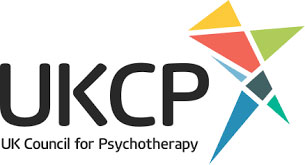REHAB & DETOX
Every client has their own life story, so there is no one size fits all model of addictions treatment. Treatment should be tailored to fit the circumstances and personal needs of the individual.
Residential Rehab Programmes
A reputable addictions treatment programme usually offers a minimum 4-12 week programme of primary treatment followed by secondary care or an aftercare package. Primary care, which may include a detox, is focused on high intensity therapy to address critical issues relating to the self-destructive and sometimes life threatening alcohol and drug use. Secondary care, which can be a transitional period before returning home, focuses on the development of recovery skills and the exploration of underlying issues related to living clean and sober. Third stage treatment, often described as dry houses or supported accommodation, are for those who need a slower and more structured transitional period.
Detox Rehab Programmes
The thought of a medical detox can be anxiety provoking. Many individuals have become so reliant on substances over long periods that the thought of letting go of this relationship can be daunting. To ensure safety and relieve unnecessary distress, a detox should be well planned by a qualified medical professional and made as comfortable as possible.
The most anxiety provoking aspect in getting help for an addiction is often the thought of painful withdrawal symptoms during detoxification.
Some addictions such as heroin addiction, benzodiazepine addiction and alcohol addiction can all have unpleasant withdrawal symptoms that if not managed correctly could be extremely dangerous. Discussing detox options with a professional can help reduce anxiety by collaboratively deciding the most comfortable detox option based of individual needs.
Detoxification can happen in various environments based on individual needs and circumstances. Some people choose to have a home detox so they can be in familiar surroundings with the support of loved ones others choose to go into a hospital, specialised detox clinics or residential treatment centres if their addictions are more severe and increased professional care and observation is needed.
Common types of heroin detox medications used include methadone reduction and Buprenorphine, also known as a subutex detox. Both aid in reducing uncomfortable withdrawal symptoms and help the individual undergoing detox remain more comfortable.
Need Help?
Please contact me for advice on the option that best suits your needs.
I’m happy to discuss what it is you require and where you can find the most effective option (including full rehab programmes) for yourself or a loved one.
The recognition that there is a problem followed by an admission that help is needed is often the first step towards a new way of life. Once an individual accepts the destructive nature of their addiction and asks for help, the process of recovery can begin.
Whilst residential rehab is one of the more effective treatment options, choosing the appropriate rehab to match individual needs is essential. Rehab programmes need to treat the individual, and may differ from person to person.
Withdrawal Symptoms
Different addictions will cause different withdrawal symptoms when the user begins a detox or isolation program. Some of these symptoms are more common than others, but all share the distinction of being harmful, disruptive or generally uncomfortable. A common theme among all substances is that withdrawals will push the recovering addict to crave fulfilment of their addiction: detoxification is meant to overcome this craving.
Some common withdrawal symptoms for major addictions include:
- Heroin: nausea, nervousness, shaking, sweating, agitation, depression, muscle spasms or twitches and unexpected abdominal pain.
- Alcohol: anxiety, vomiting, insomnia, sweating, headaches and shaking. Short-term hallucinations and seizures can also occur in extreme cases.
- Benzodiazepines: agoraphobia (fear of crowds and crowded places), concentration problems, light sensitivity, restlessness, panic attacks, loss of appetite, loss of sex drive, weight loss, tinnitus, burning skin, depersonalisation and derealisation.
All withdrawals can become more severe if you break away from the original drug or substance without warning. For example, slowly reducing your intake of ‘benzos’ can cause paranoia in the short-term, but a sudden halt can cause psychosis and delirium tremens. Rehab Programmes are meant to find the best option for each patient
Detox Medication
Common types of alcohol detox medications include chlordiazepoxide (Librium) and Diazepam (Valium). These medications are commonly used for alcohol detox as they help in managing distressing physical withdrawal symptoms that commonly occur with an alcohol detox.
Anti-seizure medication is used in alcohol detox to reduce the risk of seizures and that can happen with severe alcohol withdrawals. Anti fit medication is also commonly chosen due to the risk of seizures that can happen with severe benzodiazepines addiction. Benzodiazepine detox generally focuses on gradually and carefully reducing the amount of dosage until an individual can stop all together with the help of medication that offers symptomatic relief
Asking for help is the first step
Email me now to discuss addictions treatment options
Addictions Counselling
Identifies the important psychological functions that addiction provides. Uncovers personal experiences that contribute towards the development of addiction. Therapy must be an attuned, relationally warm and reparative encounter for an individual seeking treatment.
Treatment Planning
A collaborative, motivational and dynamic process that identifies individual needs and goals in order to plan a range of interventions. It is currently understood that an individualised person centred treatment improves outcomes.
Rehab & Detox
One of the more effective addictions treatment options. Choosing the appropriate rehab to match individual needs is essential. A medical detox can be anxiety provoking, therefore it should be well planned and made as comfortable as possible.
Aftercare
Includes support groups and ongoing addictions counselling to continue the important process of exploration and self reflection. Evidence suggests that those with strong support networks and access to ongoing treatment are more likely to remain clean or sober.

